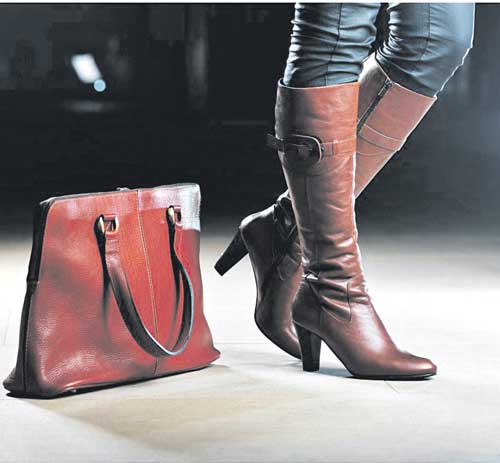CPEC: Top Pakistani businessperson suggests to promote footwear and leather goods

Islamabad: A top Pakistani businessperson Agha Saiddain has suggested inclusion of Joint Ventures (JVs) in the Special Economic Zones to promote footwear and leather goods under the China-Pakistan Economic Corridor (CPEC).
Agha Saiddain, former chairman of the Pakistan Tanners Association (PTA), indicated that China was the largest producer of footwear and leather goods and Pakistan produced excellent leather for big brands with lower labour costs.
“There is immense potential for cooperation between the two countries to create a win-win situation. I suggest inclusion of joint ventures in the Special Economic Zones under the CPEC,” he maintained in a statement.
He added that tanneries could process raw material from all over the region in Pakistan including those imported from Uzbekistan, Tajikistan, Iran, Afghanistan and Azerbaijan.
“Currently, we are utilising only 50% of our tanning capacity and 50% more capacity exists. It takes no time in increasing the capacity,” he mentioned.
According to the PTA’s Annual Report (2020-21), foreign shipments of leather and leather products from Pakistan increased by 8.86% from US $765.35 million in fiscal year 2019-20 to US $833.19 million in fiscal year 2020-21.
Saiddain lamented that in 2007-08, the leather exports stood at US $1.25 billion per year and now, they had declined to US $833 million.
With regard to the structure of leather exports, according to the Pakistan Bureau of Statistics, around 20% of total exports in fiscal year 2020-21 comprised finished leather, 34% leather garments, 31% gloves, 13% footwear and 2% leather goods.
“It is a strange that the export of footwear is less and leather garment is more,” Saiddain noted. “The global figures are not like that. In the world, footwear makes up 65% of total leather exports,” he pointed out.
He added that Pakistan had not worked on their footwear sector and there were no joint ventures. Besides, the law and order situation in Karachi was unsuitable for big brands, he observed.





